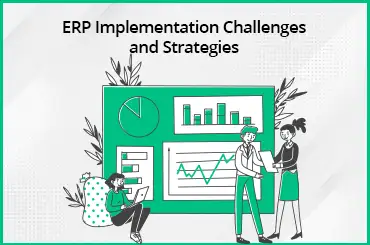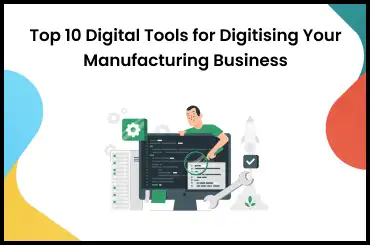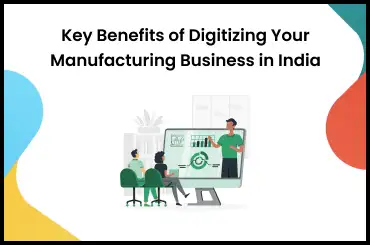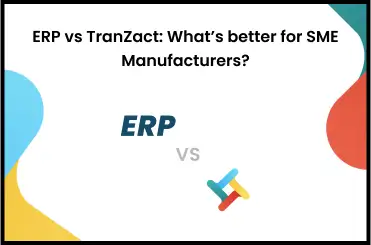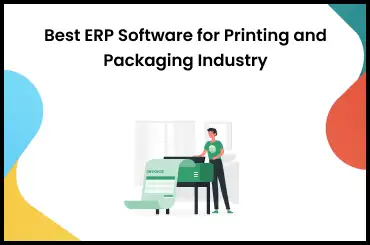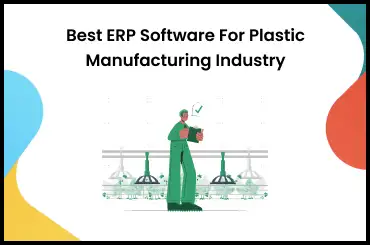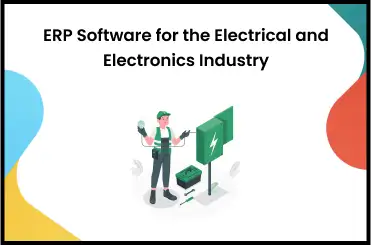The introduction of Enterprise Resource Planning (ERP) has transformed the way of doing business. Whether you have to send online invoices, monitor the procurement life cycle, or manage the manufacturing process, the need for ERP trends is integral. But the question here arises between cloud based ERP vs. web based ERP; which one is most suitable for you? Well, it depends on your business type and how frequently you need to maintain your account. Whatever your need, security and easy accessibility are the two common things every business wants to integrate into its system. Considering this, we have discussed the differences between on-web based ERP vs cloud ERP in detail in this blog post. Let’s also understand the references of Cloud based erp vs web based erp examples as well.
What Is A Cloud-Based ERP?
A cloud-based ERP system is an online ERP module solution. With this, the users can access their inventory accounting using the internet and a single device. It runs on Remote Desktop Protocol (RDP), which helps connect your device to another computer. If we talk about the prime cloud based ERP vs web based ERP advantages, you don’t need an expensive infrastructure to set up the system with web-based ERP. Cloud ERP software works on a subscription-based model where you need to keep paying regularly as long as you use it. Once the validity of your subscription is over, you can’t use their system, as you do with a prepaid mobile number. In this case, all the information is saved on the vendor’s database or third-party infrastructure.
What Is A Web-Based ERP?
A web-based ERP system is similar to a cloud ERP software with a slight difference. Web-based systems are integrated with the company network, which can also be accessed through the Internet. Here, the vendor can provide access to the chosen/required module or the entire ERP solution. When we compare the price of cloud-based ERP vs. Web-based ERP, you will find that web-based ERP is usually fixed in cost. However, the exact cost of both services may vary depending on several factors, such as the number of users, duration, package plan, infrastructure setup, and more.
- The price of the web-based ERP system can vary anywhere from 50,000 to 2 lakhs INR per year. It can even go up to Rs.20 Lakh or around based on the size of your company. However, the actual price of web-based ERP software may vary, followed by the required storage space, ERP components, and other factors.
- Cloud-based ERP software can be an affordable solution for small and medium-sized businesses that can cost you anywhere from 5,000 to 1 lakh INR as a monthly rental. Again, the actual cost of a cloud-based ERP solution would depend on your requirements.
Differentiating On-Premise And Cloud Services
You must have read about the on-premise and cloud ERP providers. But what exactly does it mean? Let’s understand. In on-premise services,
- The ERP implementation is done within the business infrastructure.
- The company owns all the ownership of the software.
- The company also needs to hire an IT professional to maintain and update the software as required.
In comparing on-web based ERP vs cloud ERP, cloud services;
- Don’t need powerful servers or operating systems to operate.
- Eliminates the licensing, as the service providers charge a specific amount till you want to use it.
- Your data is stored in the vendor’s systems or the third-party database. You can access the vendor’s hosted servers using a device and the internet. You can also share it with your employees and even restrict some of the functions that you don’t want them to access.
The Difference Between Web Based ERP And Cloud ERP Services
As technology advances, cloud-based services are getting more popular. You know, the IoT (Internet of Things), AI (Artificial Intelligence), and data analytics are allowing us to move this world at a super fast speed. So, companies also need new types of ERP systems that can improve their manufacturing process and accounting processes. To achieve this goal, some are upgrading themselves to cloud-based software, whereas some are still using web-based services. It is important to know the difference between cloud-based ERP vs. Web-based ERP to choose the better option. |
| Considerations | Cloud-Based ERP | Web-Based ERP |
|---|---|---|
| Location Of Data Storage | Stored in the vendor’s database or third-party system. | Companies have their databases or can even use them on vendor’s servers. |
| Method Of Payment | Usually, it offers a pay-per-use option or subscription-based plan. | You need to purchase the software for a specific time. |
| Adaptability | Best ERP software for small businesses, medium and large enterprises. | Suitable for small and medium enterprises (SMEs). |
| Cost Of Implementation | You can access a cloud-based ERP system as a monthly subscription plan, which is quite cost-effective. Also, you won’t be required to pay for all the features at a time because you can add them on-demand to your subscription plan. | In a web-based ERP system, you need to pay for everything upfront for a complete infrastructure setup. Also, it requires payment every year, which can be costly for SMEs. |
| Customisation Options | Highly customizable. | Limited options are available. |
Cloud Based ERP vs Web Based ERP Examples
Microsoft Dynamics 365 Business Central, SYSPRO, and Oracle NetSuite OneWorld are some of the best examples of Cloud-based ERP software. SyteLine and Odoo are the best examples of web-based ERP software.
Considerations In Choosing Cloud ERP Vs. Web Based ERP
Now, you might have got all the ideas on cloud based ERP vs web based ERP advantages. However, both types of software are important from a business perspective. For example,
- If you want to make your[inventory accounting process faster and maintain your data privacy, you need the web-based ERP example.
- But, if you want to match your business with your competition and even scale in the future, then cloud-based ERP is for you. Cloud-based ERP software provides you with a smarter way to handle your business's manufacturing process and various other tasks.
Manage Business with TranZact
In a world that is advancing in terms of technology, ERP systems are also adapting to match the competitive business world. Now, these ERP systems are getting more advanced while being compatible with the internet. Here, you have seen the comparison between cloud-based ERP vs. Web-based ERP. Now, if you are looking for a complete digital solution designed especially for Indian SME manufacturers and traders in one place, try TranZact. Companies like TranZact have transformed the way of doing business by offering flexible solutions.
FAQs
How do you choose the best Cloud-based ERP system for your business?
When choosing the right ERP, it is important to understand the difference between Cloud-based ERP vs. Web-based ERP. After that, use the following steps to choose the best ERP solution for your business.
- Determine your business first such as the number of user access, required ERP features, and more.
- Then, define your budget.
- After that, look for the integration capabilities with other software such as Tally.
- The next step is to choose according to the scalability and future growth.
- Now, look for a user-friendly interface.
- Don’t forget to check the vendor’s reputation.
- Also, evaluate the security measures.
What are the disadvantages of a Web-based ERP system?
Some web-based ERP software are complex to use and need professionals to manage them. They also require complex infrastructure and are even expensive to purchase. On one side where you can access all the required features by paying monthly rentals in cloud-based ERP, with web-based ERP software, you are bound to pay a big setup cost in advance for a selected tenure like one year, or beyond by opting for all the essential features in advance.
How can a Cloud-based ERP system help you in your business?
Cloud-based ERP software is designed to scale various operations in the business. Choosing such a system can help in team management, inventory management, generating invoices and much more. Cloud-based ERP software also allows you to remotely access full information by saving a huge cost on the service.
What are the differences between Traditional ERP and Cloud ERP?
Traditional ERPs are installed in local networks with limited access, whereas Cloud-based ERP software provides full access on the go. Also, the traditional ERP system might slow down your computer and cost you quite expensive but a cloud-based ERP solution is opposite to it.
What are the three common types of ERPs?
The three common types of ERP are:
-
Cloud-based ERP
-
Web-based ERP
-
Hybrid ERPs.
What will the future of ERPs be?
As technologies are advancing and becoming more well-maintained for effective manufacturing processes, cloud-based ERP systems are going to rule this world comparatively to other modules.








